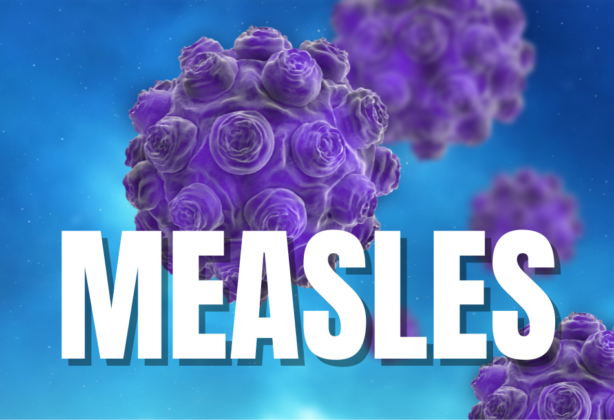Measles symptoms appear in two stages. In the first stage, the individual may have a runny nose, cough, and a slight fever. The eyes may become reddened and sensitive to light while the fever consistently rises each day. The second stage begins on the third to seventh day of symptoms and consists of a temperature of 103-105°F, and a red blotchy rash lasting for four to seven days. The rash usually begins on the face and then spreads down to the trunk and out to the arms and legs.
The measles vaccine offers the best protection against infection and avoids the risks that come with infection. The following people are considered immune to measles:
- Born before 1957;
- Received 1 dose of measles vaccine (MMR) for an adult;
- Received 2 doses of measles vaccine (MMR) for a child or an adult at higher risk of infection;
- Presence of measles antibodies shown by a lab test; and
- Previous measles infection shown by a lab test.
Learn more about measles on the Department of Health website, where you can find fact sheets, frequently asked questions, and a webinar for healthcare providers.




